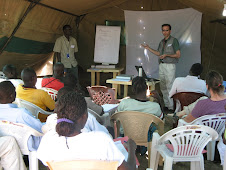What was the most surprising aspect of My Freshman Year, and why did it surprise me?
I’m not as old now as Cathy Small (aka Rebekah Nathan) was when she wrote My Freshman Year, but I have been out of college long enough to feel sorely disappointed by the lack of intellectual curiosity amongst the undergraduate students she described. I have been putting a lot of thought and energy into developing my course for next semester, and part of me feels like it’s all a big waste of time.
This surprised me because my own recollections from college include taking stimulating courses (not about sexuality), reading and loving books, meeting and admiring tough and challenging professors, in addition to making friends and having, uh, other experiences. I did not love every class I took, but I don’t remember ever thinking that a particular class or activity was a waste of time because it wouldn’t apply to my career. Perhaps this was only because I didn’t know what career I wanted when I was in college.
My disappointment is mitigated only if I compare teaching with being a boss. After all, the two roles are not dissimilar. Before coming to NDSU, I spent six years as the head of a large development media project in Africa. As one of the founders of the project, I was utterly devoted to it. It was my “baby.” For most of my staff, though, it was just a job. They generally liked what they did and saw at least some value in it beyond their own paychecks, but that was about it. Did I fault them for that? As long as they did their jobs well and didn’t create problems for the organization, no, but I must admit that I often wished they felt as passionately about the project as I did.
I suppose I should take a similar attitude towards students. After all, most have been doing nothing but attending school since they were toddlers. Academically, college (at least the first year or so) is really nothing new. If this nation’s high schools aren’t places where intellectual curiosity and diverse thinking thrive, why should we expect our colleges to be any different? Besides, as Small/Nathan points out, more and more students are going to college only because they need a degree to get a job. They’re not interested in education for its own sake, and most courses will never excite or interest them, no matter how much thought and effort teachers puts into those courses.
In light of the challenges faced by undergraduate students highlighted in the book, what advice would I give new college instructors?
Even before I read this book, I’ve tried to appreciate other cultures on their own merits, not based on my own values. This mostly applies to cultures I’ve encountered in other countries, but it applies equally to generational culture differences right here in the US. Ever since I returned to school at NDSU, I’ve reminded myself that fashion trends, hairstyles, music tastes, and other superficial manifestations of culture change all the time. Judging these things as good or evil would be to tacitly acknowledge that my generation’s fashion trends, hairstyles, or music tastes could also be evil, which seems silly. Thus, my first bit of advice would be to echo the author: take students on their own terms.
My second bit of advice would be to remind teachers that while not all of their students will be interested in their classes or find the subject matter stimulating, many will. Teachers may not be able to make a difference in all their students’ lives, but they may make a tremendous difference in some of their students’ lives. I just hope that I may inspire, advise, guide, and mentor my students the way my favorite teachers inspired, advised, guided, and mentored me.
Thirdly, I would urge new college teachers to be mindful of the many obligations their students face, particularly on- or off-campus jobs. The growing costs of a university education force many students to work longer hours, leaving them with fewer hours to read course material and complete homework assignments. Does this mean students should get a free pass on course readings and homework? No. But it does mean that teachers should be prepared to argue the educational value of assignments and course readings, or risk having students dismiss the assignments as “busy work.” In addition, teachers should be explicit and candid about required work. Information from readings and assignments that are merely “suggested” or appear to be optional should not be included on exams.
Has this book changed my perspective on undergraduate students? If no, why not? If so, how so?
My answer is yes and no. The book has reminded me that no matter how brilliant I think my course next semester will be, most of the students won’t think so. Or worse, they won’t care whether it’s brilliant or not. They just want it to be easy and over.
I’ve also been reminded that students generally enjoy the college experience, of which classes and teachers are no small part. According to Small/Nathan, students believe that most of what they learn in college happens outside the classroom. I’m not so sure. While many out-of-class experiences are probably more memorable, on average, than in-class experiences, is it empirically true that more learning takes place outside of class? To answer yes is to say that college is little more than a four-year summer camp. Yet, every year college graduates go off and get jobs in engineering firms, newspapers, schools, and government. While on-the-job training is usually provided, surely some of what qualifies these people to hold the jobs they’re given are skills and knowledge acquired in college classrooms.
That, at least, is an encouraging thought.
Subscribe to:
Post Comments (Atom)


No comments:
Post a Comment